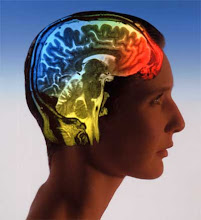Thursday, 10 June 2010
The exam 2010
On the positive side, Memory, research methods and atypical behaviour were pretty predictable. I'd even go as far as to say the questions on memory were good!
I think the one on prejudice is one of the harder Qs to answer on this topic, but it was one of your homework questions so hopefully not any great shock to you! Looking at the other social psychology topics, they were tough too.
The worst in my opionion was stress - I wouldn't have expected the 2 questions to be only on fight/flight and transactional model - both smallish areas of the topic. Hope you managed to give a good account of yourselves!
Good luck with the rest of your exams, or if you are finished - congratulations!
Friday, 4 June 2010
Eyewitness Testimony
The area draws heavily on the work of Bartlett, the first British professor of Psychology, who studied distortions in memory. Using folk stories and pictures, Bartlett (1932) found that memories were subject to things being omitted, added or changed, in order to fit with a person's expections and experience.
Loftus & Palmer (1974) showed videos of car crashes to students, and found that their estimates of speed depended on the wording of the question. This has implications for how accurate an eyewitness will be in a court room. But were they mis-remembering, or just responding to a leading question?
 To test this, L&P showed another three groups of 50 students a car accident. As part of a series of questions, 1 group were asked about the car's speed when it 'smashed' into each other, the second group about the car's speed when it 'hit', and the final group were not asked about speed at all.
To test this, L&P showed another three groups of 50 students a car accident. As part of a series of questions, 1 group were asked about the car's speed when it 'smashed' into each other, the second group about the car's speed when it 'hit', and the final group were not asked about speed at all.
A week later they were asked if they had seen broken glass. Because this was not one of the original questions, the researchers didn't think participants could have been led to an answer (through response-bias). Instead, they had apparently remembered the accident as more severe than it actually was. Loftus & Palmer concluded that verbal information in the form of questions can merge with our memory of an event.
The car crash experiments were quite artificial, and Yuille & Cutshall (1986) studied a real-life robbery, finding that eyewitnesses showed accurate recall even three months later. A real life event can stick in your mind as a 'flashbulb memory'.
However, the documentary we view recently showed how distortions in eyewitness memory can impact on a real criminal case - see my previous post for the youtube links etc.
 What factors affect the accuracy of eyewitness testimony? I suggested a mnemonic to help with this: "I see"
What factors affect the accuracy of eyewitness testimony? I suggested a mnemonic to help with this: "I see"
I - Information after the event (like Loftus experiments)
S - Social pressure (like Asch length of lines expt - see textbook)
E - Expectations (Bartlett research which showed how things are distorted to fit expectations)
E - External appearance (Race, sex etc - this overlaps with the above).
(One other thing - a lot of the older blog posts may be useful, but be careful as some of them refer to topics such as memory strategies, intelligence etc that we didn't do this year, or info about the exam that has now changed).
Wednesday, 2 June 2010
Medical research 'underfunded'
Article

An interesting point to consider - see the close parallels that are drawn between the way mental and physical illnesses are treated. The 'medical model' of atypical behaviour is an underlying assumption here.
